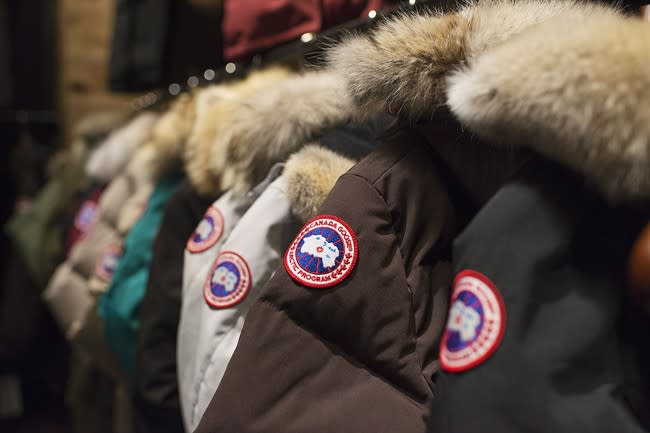Canada Goose made-in-Canada guarantee may be impossible

This time last year China’s 1.3 billion people were shivering through the country’s frostiest winter in decades. Average temperatures across the vast country fell to minus 3.8 degrees C, while those living farther north saw the mercury dip to minus 15.3 degrees, the lowest in 42 years.
Admittedly, that may not seem like such a big deal on this side of the world. Torontonians, after all, braved minus seven degrees on their morning commute Wednesday, while folks in Thunder Bay and Saskatoon are gritting their teeth through temperatures well below minus 20.
But China’s extreme weather patterns are proving increasingly important to Canada -- most certainly to Canada Goose.
The historic Toronto family firm that made the winter parka chic is banking on a big return from a planned expansion into Asia, where an unprecedented rise of the middle class makes for an attractive market destination for consumer goods of all sorts, particularly luxury items.
And who better to keep folks in this corner of the world warm than the company that`s been profiting from Old Man Winter since 1957?
The global push comes on the heels of a purchase deal announced Tuesday between Canada Goose Inc. and Bain Capital, a Boston-based private equity firm.
The two companies have not disclosed the purchase price but acknowledged Bain will own a majority stake in the company. Canada Goose Chief Executive Dani Reiss will remain in his position and maintain minority shares, somewhere above 10 per cent.
Just what this means to the rest of Canada now that its national bird has taken flight is a question many are asking. The company has famously resisted off-shoring its manufacturing operations to cheaper markets such as Bangladesh. It currently employs more than 1,000 people, most of them in Toronto and Winnipeg.
Reiss says we shouldn't worry about the jobs. He told Reuters Tuesday he wouldn’t have sold to Bain if he thought there was a risk of losing the “made-in-Canada” guarantee that has made the brand so popular.
"Our partners in Bain are 100 per cent behind us in that manufacturing philosophy," he said.
Experts say that's a promise that's going to be difficult, if impossible, to keep.
"There’s always pressure with scale to start moving things offshore," said David Ian Gray, a retail consultant with DIG360, in an interview with the Globe and Mail newspaper.
Take a lesson from Lululemon
Maintaining quality in the wake of rapid growth could prove even more of a challenge. The brand currently enjoys an enviable reputation for making the "warmest jackets on earth." The goose-down parkas with their coyote fur-lined hoods and hefty price tags upwards of $600 are a must-have among ordinary citizens and celebrities alike. Model Kate Upton set sales on fire in February when she donned a Canada Goose jacket, and little else, for the cover of the Sports Illustrated swimsuit edition.
Earlier this year, Reiss admitted it's a struggle to stay true to the promise of authenticity during periods of corporate expansion.
"The bigger you get, the harder it gets to manage a brand," he said. Few companies understand those pressures better than Lululemon.
No sooner had the Vancouver-based yoga-clothing giant begun to recover from a costly recall of thousands of pants that left customers feeling too exposed, than it found itself the centre of another crushing controversy this year.
Chip Wilson, company founder, rubbed millions of loyal fans of the brand the wrong way when he suggested in a televised interview the fashion flaws had more to do with the size of some women’s thighs than how the pants are manufactured. He resigned as chair of the company Tuesday.

 Yahoo Finance
Yahoo Finance 
